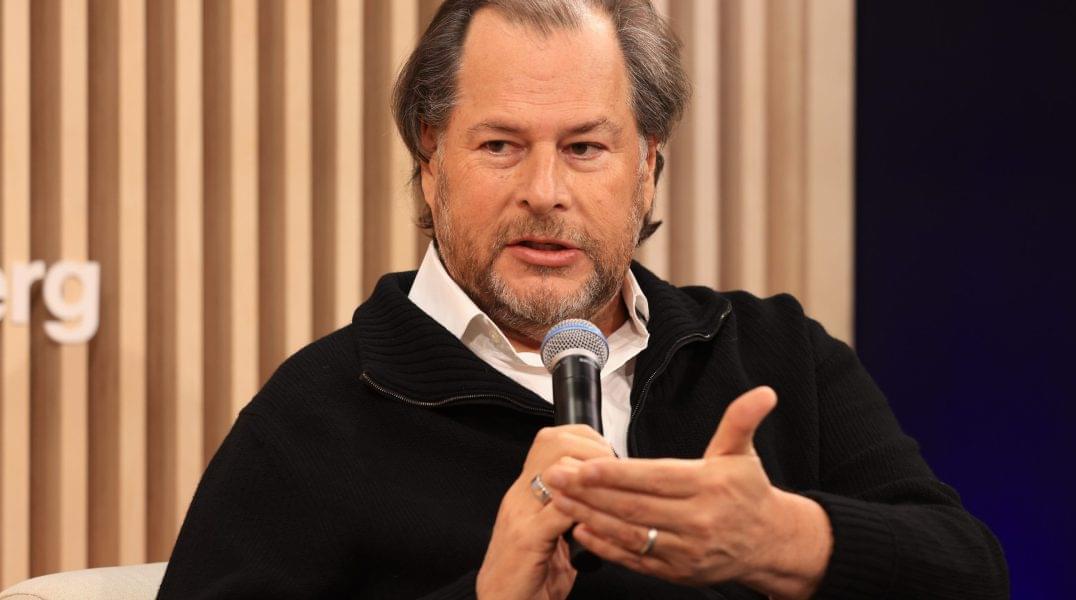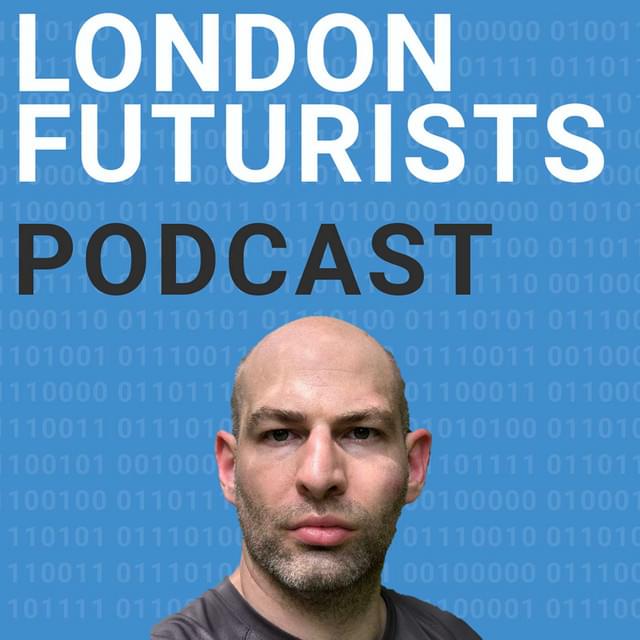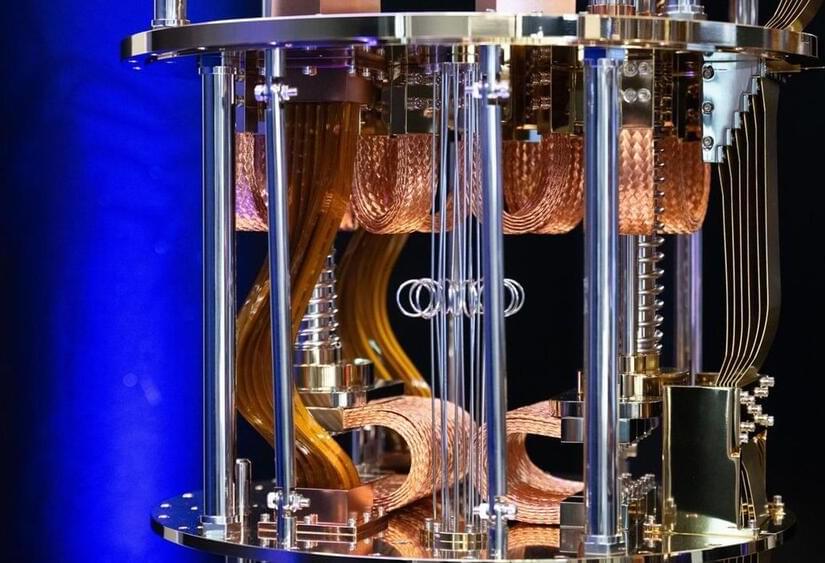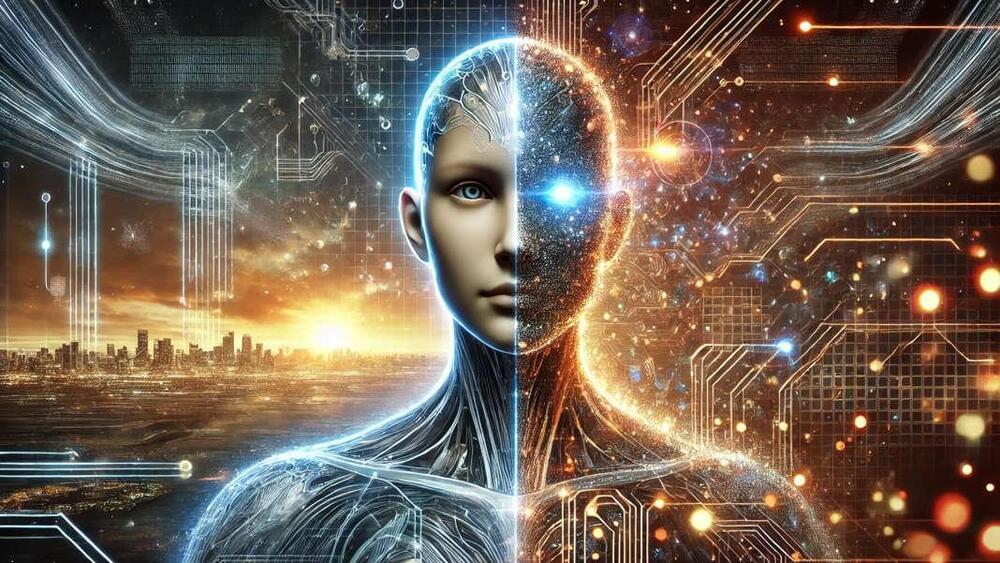THE ECONOMIC SINGULARITY IN 2 TO 3 YEARS.
“My guess is that by 2026 or 2027, we will have AI systems that are broadly better than almost all humans at almost all things,” Amodei (Anthropic CEO) said at the event.
Enter the new era of AI coworkers.

Professors Jon Chapman and Sam Howison explain the science behind Euler’s Disk.
🎬 | Mathematical Institute, University of Oxford.
#maths #math #mathematics #stem #singularity #toy #toys #eulersdisk #oxforduniversity #mathsexplained #toysofInstagram

The concept of Omega Singularity encapsulates the ultimate convergence of universal intelligence, where reality, rooted in information and consciousness, culminates in a unified hypermind. This concept weaves together the Holographic Principle, envisioning the universe as a projection from the Omega Singularity, and the fractal multiverse, an infinite, self-organizing structure. The work highlights a “solo mission of self-discovery,” where individuals co-create subjective realities, leading to the fusion of human and artificial consciousness into a transcendent cosmic entity. Emphasizing a computational, post-materialist perspective, it redefines the physical world as a self-simulation within a conscious, universal system.
#OmegaSingularity #UniversalMind #FractalMultiverse #CyberneticTheoryofMind #EvolutionaryCybernetics #PhilosophyofMind #QuantumCosmology #ComputationalPhysics #futurism #posthumanism #cybernetics #cosmology #physics #philosophy #theosophy #consciousness #ontology #eschatology
Where does reality come from? What is the fractal multiverse? What is the Omega Singularity? Is our universe a \.

Tomorrow at 1PM PT / 4PM ET, we Premiere a new episode of Robots In Space, and this is about bots, including the latest on Phoenix from Sanctuary AI, the impact of cognitive automation on jobs, the Economic Singularity, plus our proprietary Event Horizon Indicator.
Discover how robotics and AI are reshaping our economic landscape in this eye-opening analysis. As an engineer, I break down the latest developments in humanoid robots, particularly Sanctuary AI’s breakthrough in hydraulic robotics and robot dexterity. Learn about my proprietary Event Horizon Indicator that tracks our progression toward the Economic Singularity through labor force participation and unemployment trends. From warehouse robotics to manufacturing automation, understand how the robot workforce is transforming industries and what this means for the future of work. Whether you’re interested in AI economics or concerned about tech unemployment, this video provides crucial insights into the ongoing robot revolution and its impact on our economy.
Biological replacement and cryopreservation to significantly extend human lifespans — eli mohamad & kai micah mills — hydradao and cryodao.
Eli Mohamad is a prominent figure in the biotech, space, and AI industries who has co-founded several successful startups and has a real passion for groundbreaking ventures that focus on the development of futuristic technologies.
Currently as a Core Team Member at CryoDAO (https://www.cryodao.org/), a decentralized organization focused on sourcing and funding research in cryopreservation, Eli continues to work at the forefront of innovative technologies and applies his extensive experience in biotechnology and innovative projects to advance novel cryopreservation technologies and their various applications, from critical tissue and organ preservation, to cryo-sleep and suspended animation for space exploration.
Eli has also been involved in setting up another decentralized organization called HydraDAO (https://hydradao.org/) which is focused on funding and incubating biological replacement research to significantly extend human lifespan and will be looking at everything from Limb Regeneration, Organ Bioprinting and Xenotransplantation, to Progressive Brain Replacement, head/brain transplants, and even whole body replacement via non sentient cloning.
Throughout his career, Eli has held various leadership positions in cutting-edge companies including as Co-founder and Chief Business Officer at X-Therma Inc., a company focused on complex tissue preservation; Advisor and Chief Business Officer at Rimac Automobili, working on high-performance electric vehicles; CFO/CBO at Insilico Medicine, Inc., as well as Co-founder of Organ Preservation Alliance, a non-profit organization dedicated to the future of organ banking, Orphidia Ltd., a medical diagnostics company, and Walkmore, a data science company.
00:00 — AI News Overview.
00:20 — Grok 3 Announcement.
01:05 — ChatGPT vs Others.
02:15 — Grok Diagnoses Injury.
06:03 — AI in Healthcare.
06:19 — AI Surveillance Debate.
09:17 — China’s Social Credit.
09:46 — VO2 Video Models.
10:28 — AGI’s $15 Quadrillion Value.
12:13 — Meta’s AI Users.
14:49 — Yann LeCun on AI
16:39 — Clone Robotics Update.
18:14 — NVIDIA Cosmos Explained.
21:06 — NVIDIA Road Simulation.
24:20 — Sam Altman on Singularity.
27:08 — Model Parameter Sizes.
28:21 — Gen X World Explorer.
30:30 — AI Video Realism.
Join my AI Academy — https://www.skool.com/postagiprepardness.
🐤 Follow Me on Twitter https://twitter.com/TheAiGrid.
🌐 Checkout My website — https://theaigrid.com/
Links From Todays Video:
Welcome to my channel where i bring you the latest breakthroughs in AI. From deep learning to robotics, i cover it all. My videos offer valuable insights and perspectives that will expand your knowledge and understanding of this rapidly evolving field. Be sure to subscribe and stay updated on my latest videos.
Was there anything i missed?
(For Business Enquiries) [email protected].
The latest AI News. Learn about LLMs, Gen AI and get ready for the rollout of AGI. Wes Roth covers the latest happenings in the world of OpenAI, Google, Anthropic, NVIDIA and Open Source AI.
My Links 🔗
➡️ Subscribe: / @wesroth.
➡️ Twitter: https://twitter.com/WesRothMoney.
➡️ AI Newsletter: https://natural20.beehiiv.com/subscribe.
00:00 singularity is near.
01:37 Sam Altman’s Blog Post \

Are we on the path to becoming one with machines? 🤖✨ In this video, we dive deep into the concept of The Singularity—the point where humanity and artificial intelligence merge into one seamless entity. From advanced neural interfaces to AI-driven biological enhancements, we’ll explore the technologies paving the way for this future transformation.